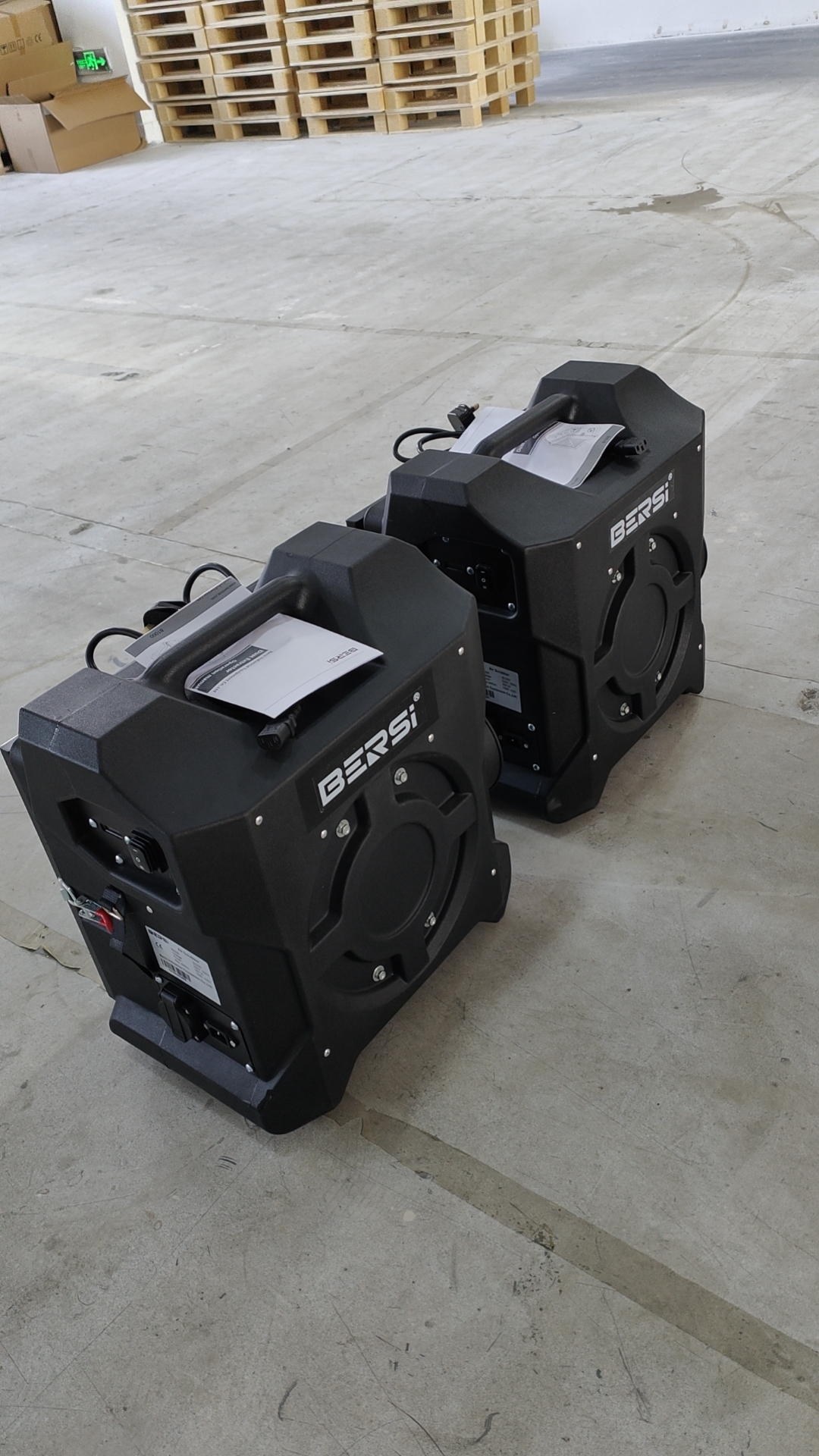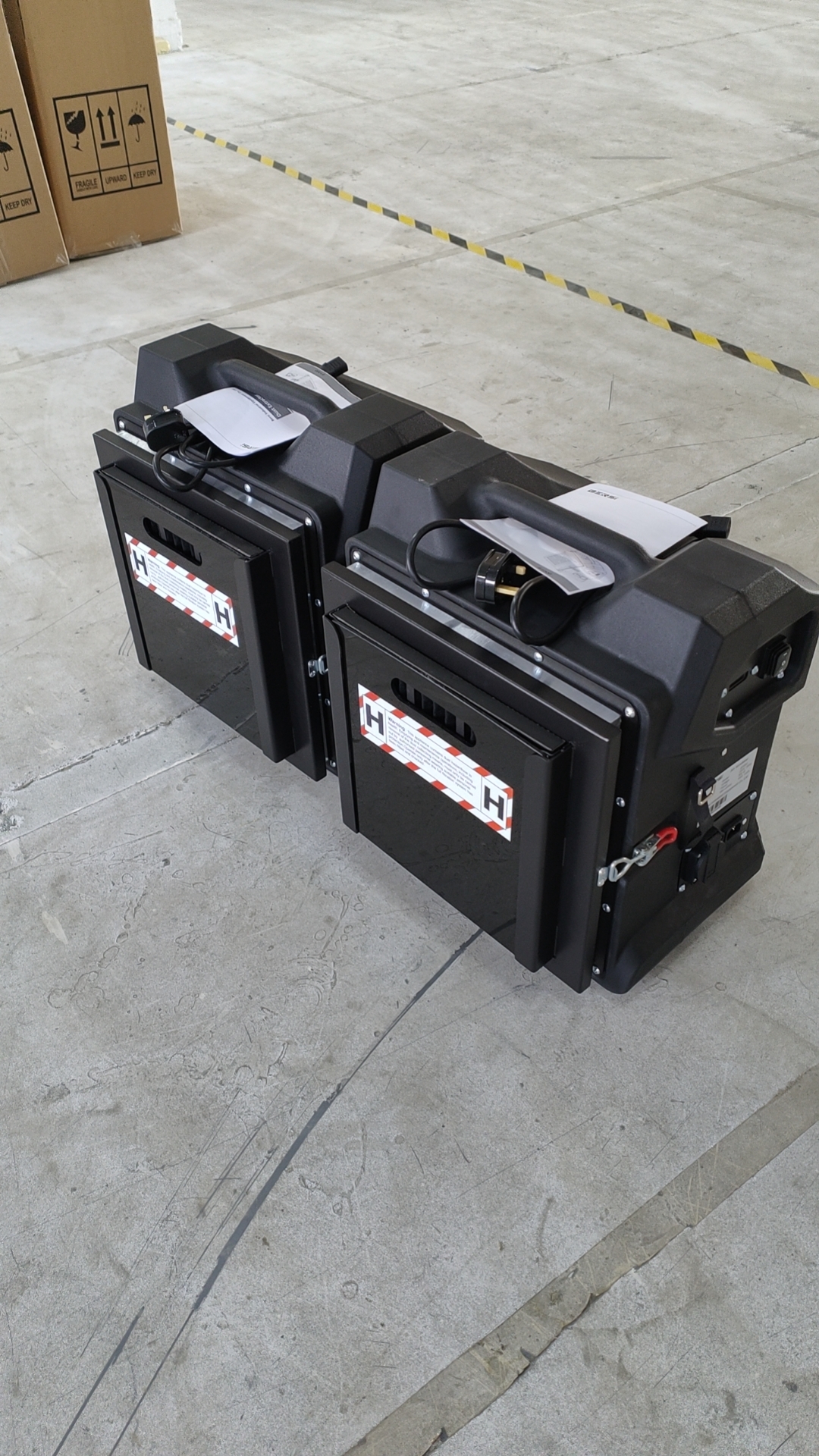When it comes to concrete grinding and polishing, maintaining a clean and safe work environment is crucial.A HEPA dust extractor is often the first line of defense. It efficiently sucks up a large portion of the dust generated during processes like concrete grinding and polishing,preventing them from settling on surfaces or being inhaled by workers. They play a vital role in reducing the dust load in the immediate area around the grinding and polishing machine.
However, it has its limitations. The dynamic nature of work operations and the presence of air currents mean that not all dust is captured.HEPA industrial vacuums are incredibly effective at managing dust at the source, they cannot always address the total air quality in the room. Airborne dust can still remain suspended in the air, circulating and potentially causing respiratory problems for workers over time.Many professionals overlook the importance of industrial air scrubbers. They think having an anditional machine in their van will only add to the inconvenience. 
Why You Still Need a HEPA Air Scrubber in Concrete Grinding and Polishing
Here are several reasons why a HEPA industrial air scrubber is just as important as a dust extractor when working in confined spaces or when high air quality is essential:
- Airborne Dust Removal Beyond the Dust Extractor’s Reach
HEPA dust extractors are excellent for capturing dust that is created directly at the tool’s source. However, fine concrete dust can still be released into the air and may remain suspended for long periods. Even the best dust extractors cannot capture all airborne particles, especially in larger, more open spaces. HEPA air scrubbers continuously filter the air, trapping fine dust and contaminants that float in the air, ensuring the environment remains clean.
- Protecting Worker Health: Reducing Silica Dust Exposure
Concrete grinding and polishing can release harmful silica dust, which poses serious health risks, including respiratory illnesses and lung disease. Silica dust can be dangerous when inhaled, as it can penetrate deep into the lungs. While a HEPA dust extractor captures much of the visible dust, it cannot guarantee that all fine, inhalable particles are removed from the air. A HEPA air scrubber filters out even the tiniest particles, ensuring the air quality is safe for workers, thus reducing the risk of silicosis and other long-term health issues.
- Improved Air Quality in Confined Spaces
When working in enclosed spaces—such as basements, small rooms, or areas with limited ventilation—the air can quickly become saturated with dust. A HEPA air scrubber ensures that even in these tight spaces, the air is continually purified, providing a safer working environment. This is especially critical on construction sites or during large-scale concrete polishing jobs, where dust levels can escalate rapidly.
- Enhancing Worksite Productivity and Comfort
Dusty air can cause discomfort, making it harder for workers to focus and perform at their best. By using an air scrubber, workers will breathe cleaner air, reducing the chance of respiratory discomfort, coughing, and fatigue. With a reduction in dust exposure, workers will be able to stay focused for longer periods, improving overall worksite productivity and efficiency.
- Meeting Industry Standards and Regulations
Many industries, particularly construction, have strict regulations concerning airborne dust exposure. OSHA and other regulatory bodies have set permissible exposure limits for certain dust particles. Using both a HEPA dust extractor and a HEPA air scrubber helps you meet these regulations and maintain a compliant and safe job site. Ensuring that your work environment adheres to OSHA silica dust standards not only helps protect workers but also shields your business from potential fines and legal liabilities.
How a HEPA Air Scrubber Works to Improve Air Quality
A HEPA air scrubber operates by drawing air through multiple filters, trapping harmful particles such as dust, allergens, and pollutants. Here’s how it works:
- Filtration Process: Air scrubbers use high-efficiency particulate air (HEPA) filters that capture particles as small as 0.3 microns. This includes not only the concrete dust generated by grinding and polishing but also bacteria, viruses, and other airborne pollutants.
- Continuous Air Cleaning: Unlike a dust extractor, which is used intermittently near a dust-generating tool, an air scrubber works continuously to clean the air in the entire room or workspace. The air scrubber circulates the air, pulling it through the filter system and releasing purified air back into the environment.
- Portable and Versatile: HEPA air scrubbers are portable and can be placed in various locations to maximize air purification. They are especially useful when working in multiple rooms or large areas, ensuring that even spaces away from the dust extractor remain dust-free.
In the demanding world of concrete grinding, dust control is not just about keeping surfaces clean—it’s about protecting the health of your workforce. While HEPA dust extractors help capture dust at the source, HEPA air scrubbers ensure that the entire workspace remains free of harmful airborne particles. By investing in both, you create a safer, cleaner, and more efficient working environment that reduces health risks, increases productivity, and helps you stay compliant with industry standards.
Post time: Dec-03-2024

